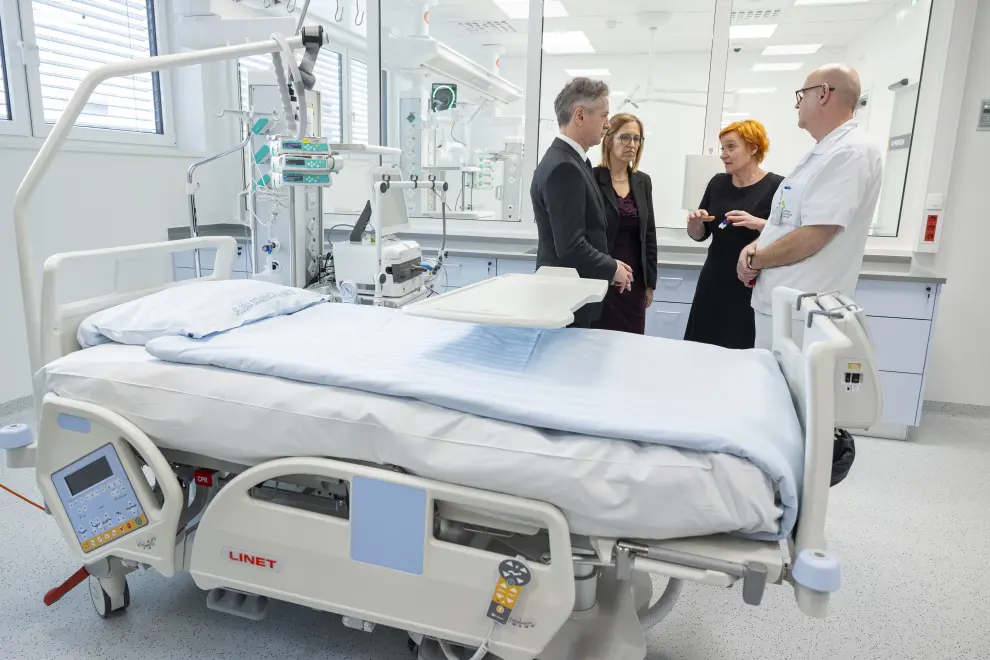Doctors' strike turns into Slovenia's longest
The ongoing general strike of doctors and dentists entered its fifth week on 12 February, becoming the longest-running ever staged by doctors in Slovenia. There is currently no end in sight to it yet.
Visiting the general hospital in Jesenice, NW, Prime Minister Robert Golob called on the Fides trade union to suspend the strike for the duration of negotiations to prevent additional distress of patients.
He argued that long-term solutions can only be reached in the ongoing talks on new pay pillars in the public sector, where healthcare is to get a separate one. He hopes Fides will start attending these meetings instead of insisting on separate talks.
While engaging in separate talks with the doctors' union, the government has been adamant it will tackle pay issues for the entire public sector comprehensively, lest it should open the floodgates for similar demands from other groups. Such a position has led to strikes by several groups in recent weeks.
"I would like to underline .... that the healthcare system is based on teams .... so a long-term solution can only be one that also includes nursing staff," Golob said as he attended the inauguration of a new intensive care unit at Jesenice hospital.

Prime Minister Robert Golob and Health Minister Valentina Prevolnik Rupel (first and second from left) attend the inauguration of a new intensive care unit at Jesenice hospital. Photo: Bor Slana/STA
Fides has shown no intention of curbing its industrial action, launched on 15 January to secure better pay and working conditions, as promised to doctors by the government in late 2022.
In response to PM's call, Fides retorted that Golob can end people's suffering at once if the government honours its commitments, arguing that by "going back on his word and signed agreement", Golob caused the strike himself.
During the strike, at least 6,900 appointments for check-ups or procedures have been cancelled or postponed. But the situation may worsen further.
Some hospitals have said they will rescind approvals that allow doctors to work for other providers in their spare time, with Fides saying that such actions could be met with lawsuits against employers.
In UKC Ljubljana, the country's largest medical centre, 30% of doctors, between 415 and 420, have revoked their overtime consent, Fides vice president Milenko Stanković said on 12 February.
Commenting on the intention of some hospitals and other public healthcare institutions to prohibit their doctors from working for other providers, Stanković said UKC Ljubljana had not made such a decision, adding this would mean "shooting itself in the foot", as the majority of doctors who work for other providers do so at other public healthcare institutions.
Asked whether the strike could end by March, when most of the overtime consent withdrawals would kick in, Stanković was not overly optimistic, given the pace of the talks and what he called the government's unwillingness to find solutions.


